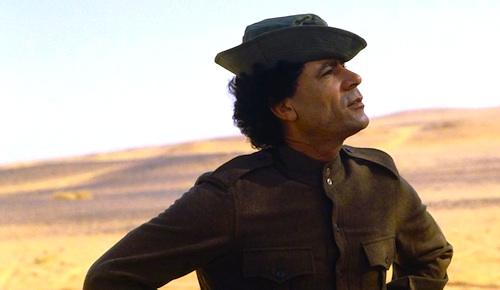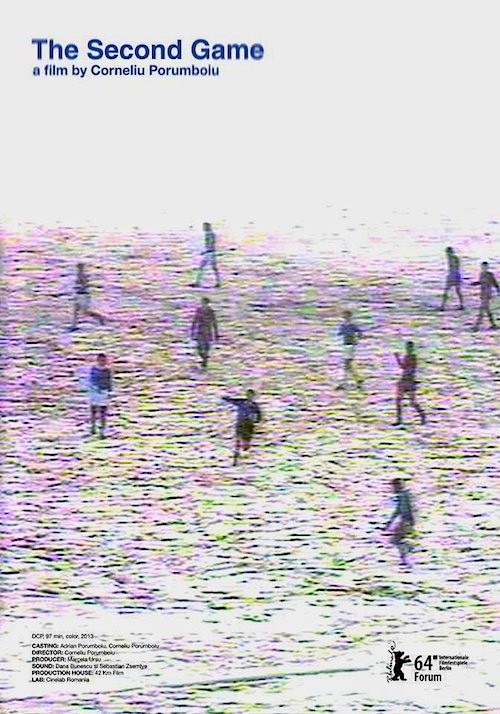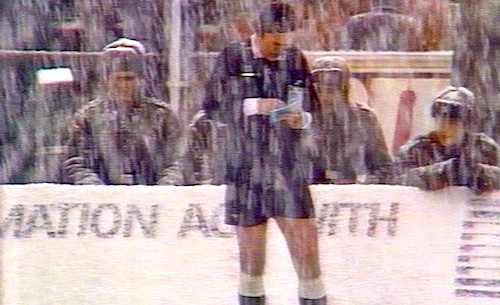By Joe Bendel. Muammar Gaddafi was responsible for the mass murder of man and camel alike. Never shy about executing those unfortunate enough to have their loyalty questioned, Gaddafi also once ordered the wholesale extermination of all camels within Tripoli, believing they were incompatible with his vision of a modern city. Yet, during his final years, Gaddafi traveled internationally with representative camels along with his ostentatious, bullet proof tent, and extensive entourage of female bodyguards. Even the animals never knew where they stood with the Libyan tyrant. The cruel and erratic nature of his dictatorship is documented in shocking detail throughout Christopher Olgiati’s Mad Dog: Inside the Secret World of Muammar Gaddafi, which premieres on Showtime this Friday.
It was President Ronald Reagan who dubbed Gaddafi a “mad dog” and history has vindicated him once again. Gaddafi initially charmed his neighbors and the regional media, but as the years progressed, his grandiose ambitions to become a modern day Saladin were largely derided within the Arab world. Instead, he tried to “re-brand” himself as the once-and-future “King of Africa,” launching a good will offensive aimed at Africa’s crowned royalty, despite his explicitly racist beliefs. At least, he always maintained mutually cordial relations with just about every terrorist group operating around the globe, including Carlos the Jackal, the PLO, and the IRA.
Nearly everyone will go into Mad Dog with the general understanding that Gaddafi was a bad guy, but the depths of his sadistic perversity are truly shocking. Olgiati thoroughly exposes Gaddafi’s crimes as a sexual predator, targeting young girls and boys alike, in a manner befitting Uday Hussein as immortalized in Lee Tamahori’s The Devil’s Double.
Indeed, Mad Dog uncovers many more truly bizarre revelations that are mystifyingly macabre (you could say he had a habit of keeping his political opponents on ice). To his credit, director-producer-cameraman Olgiati pushes his interview subjects to be precise and supply specifics. He never accepts vague implications, forcing them to spell out each and every incident under discussion. While most of the talking heads are surviving Libyan dissidents, there are a few hidden camera sequences with former regime insiders that are highly illuminating.

Perhaps the least substantiated passages within Mad Dog are the rather gossipy charges of CIA support for Gaddafi during his early days as a mini-mart for terrorists. However, Olgiati is on solid ground criticizing the overly optimistic campaign to rehabilitate Gaddafi (who by the way, was sitting on top of vast oil reserves). He also notably details ways in which Gaddafi exploited Islam to serve his propaganda purposes.
Olgiati paints a comprehensively damning portrait of Gaddafi, but it is also a well paced, compelling viewing experience. He certainly appreciates the spectacle of Gaddafi’s flamboyant vanity, but never loses sight of his brutal despotism. Recommended for anyone seeking insight into the Libyan revolution, Mad Dog: Inside the Secret World of Muammar Gaddafi airs this Friday (4/11) on Showtime.
LFM GRADE: B
Posted on April 9th, 2014 at 11:21pm.

